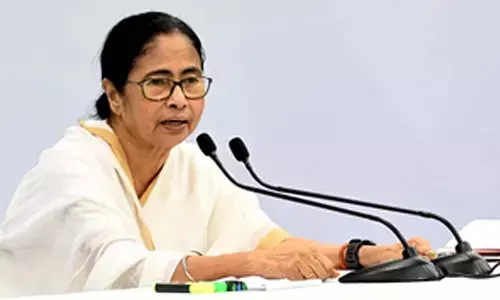The Inimitable Sardar

The Inimitable Sardar, Sardar Vallabhbhai Patel has been made an unperson by Jawaharlal Nehru and his successors in the dynasty in the same fashion as some ruling leaders of the Communist Party of USSR had denigrated their predecessors.
Sardar Vallabhbhai PateL’s Birth Anniversary today
Sardar Vallabhbhai Patel has been made an unperson by Jawaharlal Nehru and his successors in the dynasty in the same fashion as some ruling leaders of the Communist Party of USSR had denigrated their predecessors, appropriating all the achievements the country made for themselves. Three times during his life time, Sardar Patel stepped aside from becoming the president of the Indian National Congress (INC), to make way for Jawaharlal Nehru, even though no Pradesh Congress Committee (PCC) was supporting Jawaharlal Nehru. Mahatma Gandhi prevailed upon Sardar Patel every time to withdraw in favour of Nehru. In 1945 when India’s independence was imminent and the new president in place of Abul Kalam Azad was to be elected, all PCCs proposed Patel’s name as the party president with the intention that he would become the Prime Minister. Not one Committee proposed Nehru’s name, yet on Gandhiji’s advice Patel withdrew in favour of Nehru. The fear was that if he did not become the Prime Minister, Nehru would leave the Congress or split it in the company of Congress socialists like Jayaprakash Narayan. Gandhiji feared that this would be disastrous. In 1928, for first time, Sardar Patel’s name was proposed as the president of the INC. Nehru’s father Motilal Nehru requested Gandhiji to make his son succeed him. On Gandhiji’s advice, Patel withdrew his candidature. In 1959, Indira Gandhi was made the president of Congress at the insistence of Jawaharlal Nehru. After Independence, Jawaharlal Nehru invited members of the Muslim League and its leaders, who remained in India after splitting the country, to join the Congress. They joined in large numbers and since then the Congress has become more or less a Muslim-caring party. Sardar Patel invited the RSS members to join the Congress but they did not. They have been paying a big price for it. The 600-odd princely states in India had the choice to join either Pakistan or India or be independent. When Sardar Patel gave his consent to Mountbatten’s proposal for the division of India, he put the condition that he (that is Sardar Patel) and not Mountbatten should deal with the Princes and Nawabs. Mountbatten agreed. All these princely states were integrated into the Indian Union during his short life of less than two and a half years after Independence. Junagarh’s Muslim Nawab acceded to Pakistan but under Sardar Patel’s guidance, there was a people’s movement against that accession. The Nawab fled and Junagad became part of Saurashtra and was later merged in Gujarat. Jawaharlal Nehru did not allow Patel to deal with Jammu & Kashmir. The Nizam of Hyderabad was in collusion with Pakistan . Mountbatten, as the Governor General with the tacit approval of Nehru, was planning to give a special status.
.jpg)
Sardar Patel waited for Mountbatten to leave India in June 1948. By that time, every attempt to have some settlement or other with the Nizam, including offer of special status failed . Then, unlike Nehru’s dealing in Kashmir, Sardar Patel decided on Police Action. In a matter of four days, on the 17th September 1948, the Nizam, his army and his Razakars were brought to their kneels. The territory was integrated with the rest of Bharat.
Sardar Patel is portrayed as an enemy of Muslims. He was far from it. Unlike Nehru and secularists, he was not flattering Muslims. In his addresses both before and after the Hyderabad Police Action, he assured Indian Muslims that all loyal citizens of India irrespective of religion would have equal rights and treatment. But every act of disloyalty and defiance would be put down. This plain talking is interpreted as Patel’s enmity to Muslims. Sardar Patel also successfully suppressed the Communist insurgency instigated by Stalin.
The actions of Sardar Patel, which were unpalatable to Nehru, have made him a persona non grata with the Nehru Dynasty and Communists and their fellow “intelligentsia” and “eminent” historians.
The single party majority that BJP secured in the elections to the Lok Sabha in 2014 can be considered to herald the Second Republic of India. It is for the first time that Sardar Patel’s Jayanti is being celebrated with the involvement of the Government of India. Persons like Tanguturi Prakasam Pantulu, Purushottam Das Tandon, J.B Kriplani, Rajaji not to talk of Subhash Chandra Bose, Bala Gangadhar Tilak, Lala Lajpati Rai and Bipin Chandra Pal should all be given the honours due to them.




